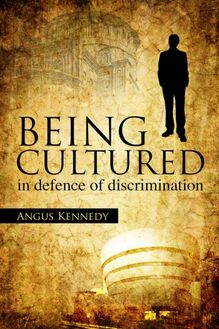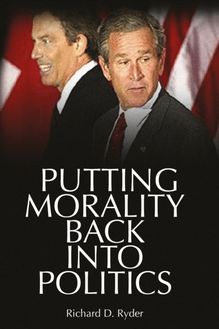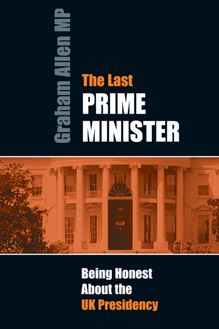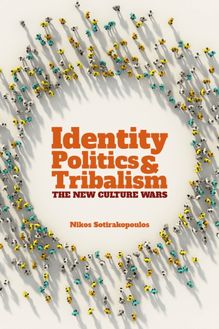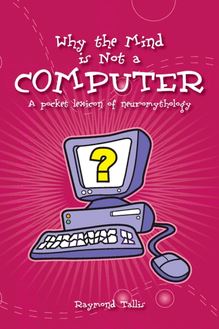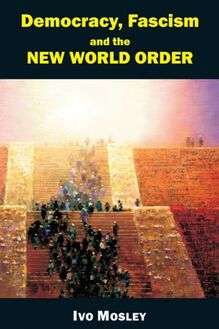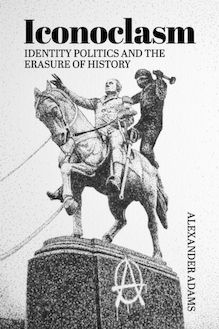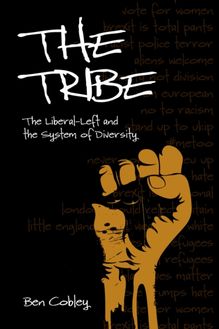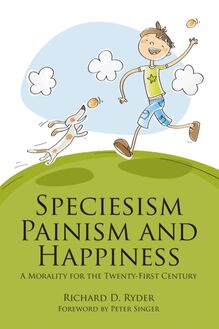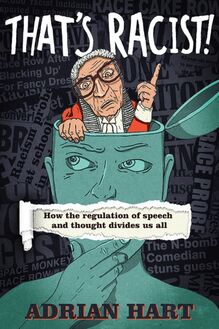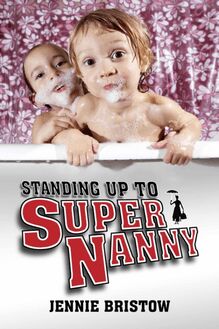Identity Politics and Tribalism , livre ebook
108
pages
English
Ebooks
2021
Vous pourrez modifier la taille du texte de cet ouvrage
Obtenez un accès à la bibliothèque pour le consulter en ligne En savoir plus
Découvre YouScribe et accède à tout notre catalogue !
Découvre YouScribe et accède à tout notre catalogue !
108
pages
English
Ebooks
2021
Vous pourrez modifier la taille du texte de cet ouvrage
Obtenez un accès à la bibliothèque pour le consulter en ligne En savoir plus
Identity Politics and Tribalism
The New Culture Wars
Nikos Sotirakopoulos
Published in 2021 by
Imprint Academic
PO Box 200, Exeter
EX5 5YX, United Kingdom
imprint-academic.com
Digital edition converted and distributed by
Andrews UK Limited
www.andrewsuk.com
Copyright © 2021 Nikos Sotirakopoulos
The right of Nikos Sotirakopoulos to be identified as the author of this work has been asserted in accordance with the Copyright, Designs and Patents Act 1988.
All rights reserved. No reproduction, copy or transmission of this publication may be made without express prior written permission. No paragraph of this publication may be reproduced, copied or transmitted except with express prior written permission or in accordance with the provisions of the Copyright Act 1956 (as amended). Any person who commits any unauthorised act in relation to this publication may be liable to criminal prosecution and civil claims for damage.
The views and opinions expressed herein belong to the author and do not necessarily reflect those of Imprint Academic or Andrews UK Limited.
Acknowledgements
I owe a huge ‘thank you’ to: The Prometheus Foundation: for its generous support, and for funding the production of this book. The publishing house, Imprint Academic: they gave the book a chance, despite its potentially controversial nature. This is not a given in today’s intellectual climate, as I learned the hard way. Gregory Salmieri: this book would not have some of its best intellectual insights without our discussions and his mentorship. Obviously, we do not share the same view on many topics, so any issues with the book are on me. Joanna Williams: her support during the various adventures that this book has been through has been tremendous. Costas Spanos: besides being a great friend, he also proved to be a great proofreader. Tal Tsfany, the Ayn Rand Institute, and the Objectivist Academic Center: for all they have done for my intellectual and professional development. Claire Fox, Frank Furedi, and the team around the Battle of Ideas: for all the food for thought they have given me throughout all these years. My colleagues at York St John University: for providing a supportive professional environment, despite any philosophical disagreements. My family: besides everything else they have offered me, they inspired in me the passion for knowledge and ideas. You, the reader: for picking up this book. I hope you will get value out of it.
Introduction
People who know me consider it weird that I wrote this book. ‘You’re critiquing political passions getting out of hand, and people being overwhelmed by tribal emotions? You’re guilty of both!’ On one level, they are right.
Until around a decade ago, I was dreaming of barricades, general strikes, and a cataclysmic revolution that would overthrow capitalism. Actually, I was not only dreaming about it, but I tried to make it happen, which is why I joined the Youth of the Communist Party of Greece in my early adulthood. Fast-forward to the second decade of the 21st century, in my 30s I find myself at an opposite pole of the political spectrum: being an (at least in the eyes of colleagues and friends) ‘extremist’ for individual rights, freedom, and a laissez-faire economy, joining groups that support such causes, giving talks, arguing on Twitter, and writing articles and books.
Nor am I immune to the strong emotions of what someone might understand as tribalism. Quite the contrary; my other big passion in life besides politics has been sports, where I get quite ‘tribal’. On paper, I have been critical of the phenomenon that Michael Billig (1995) has described as ‘banal nationalism’, with rituals around the flag, the parades, the national mythology, and all the folklores. Yet, I have caught myself getting goosebumps when our national team’s players are lined up while the Greek anthem is playing before important games. I have felt a lump in my throat when Greek athletes win a gold medal at the Olympic Games and stand on the podium holding our blue-white flag. Watching these events away from home as a Greek ex-pat only adds to the emotion of the occasion. Thus, this book is not written from a detached standpoint of someone who cannot understand why people get passionately caught up in politics and why they are overwhelmed by strong feelings of belonging. I can get all that; yet, I see something uglier happening around me, in my social circles and generally in the public sphere.
Actually, a lot of people have sensed that something has changed in recent years. 2016 is seen as a turning point, with the Brexit vote in the UK and the victory of Donald Trump in the US election. The summer and autumn of 2020, with the pandemic, the lockdowns, the murder of George Floyd and the following weeks of protests and rioting, and the Presidential elections in the US have been the culmination (up to this point) of this process. ‘What is happening to the world?’, many are asking.
What is more, these political and cultural tensions more and more infiltrate our personal lives. ‘Did you hear the news about Carla and Mike?’, a friend messaged me one afternoon in late 2018. ‘They’re breaking up. It all started in a dinner conversation with some colleagues. They were bashing Jordan Peterson, but Mike defended him and revealed he actually liked some of his online lectures. Carla was shocked, they had a fight, and told him she doesn’t even recognize him anymore. It all went downhill from there…’ Names and minor details are altered, but the story is real. Also, it is not an isolated incident.
How we perceive and react to public figures, political events, and the latest news cycle is becoming more and more a defining characteristic of who we are. According to one piece of research, 16% of participants had stopped talking to a friend or a relative because of the 2016 US election (Whitesides, 2017). Divorce lawyers in the USA have reported couples wanting to end their decades-long marriage due to one of the spouses voting for Trump (Langmuir, 2018). Meanwhile, in the UK, the Brexit vote of 2016 on the EU-membership referendum exacted a heavy toll on many romantic couples and friendships (Mangan, 2016; Frostrup, 2016; Chakelian, 2018). Anyone who has spent even 5 minutes on any dating app will have come across statements such as ‘If you are a Tory/Brexiteer, swipe left’ (this means a rejection on Tinder). But it is not only central and polarizing political events, such as the US elections and Brexit, that are creating such divergences. At least three people I know have confided in me that they are struggling to find a new quality razor for their shaving, but they’d never go back to Gillette. The reason is the company’s infamous advert portraying traditional masculinity in negative colours, as violent and passé (McCluskey, 2019). Apparently, some skin irritation from an inferior razor is a price worth paying for making a statement in today’s culture wars.
Not unpredictably, political passions have often escalated to violence. From assaults in American universities against speakers and attendees in public lectures to the bloody events in Charlotesville in 2017, to terrorist attacks by white supremacists and religious fundamentalists, to the murder of Labour MP Jo Cox by a perpetrator of Nazi convictions in the UK in 2016, to the weeks of rioting, violence, intimidation, and vigilantism in the American streets in the summer of 2020, to the storming of the US Capitol in January 2021, we have more and more indications that the problem of an ever more toxic public sphere is real.
This book aims to examine where this toxicity is coming from, and what is its distinctive characteristic. Of course, there have been many good works in the last few years trying to navigate the topic of the recent social, cultural, and political tensions. Many of them had very interesting insights that have been an influence in my work. Yet, I think there are some important parameters missing from the debate, which is why this book is joining it.
There are many possible explanations as to the root of the problem of our current struggles. Lukianoff and Haidt (2018) did a thorough job portraying elements in the education system and the socialization process that have led young people today towards personality traits such as self-righteousness and intolerance that are related to many episodes in the culture wars, especially in universities. Campbell and Manning (2018) elaborated on how elevating victimhood as a sought-after status contributes to such self-righteousness and adds fuel to group conflicts about who oppresses whom. Other writers have focused on specific battlefields of the culture wars, such as free speech (Fox, 2016; Hume, 2015) and gender (Williams, 2017). There have also been good works about the left and its role in today’s culture wars (Cobley, 2018; Murray, 2019), but also about the contribution of the populist and far right (Nagle, 2017; Sedgwick, 2019). Others have highlighted the impact of what can be loosely referred to as postmodern ideology and critical theory in eroding society’s grasp on the concepts of objectivity, individuality, and universalism (Pluckrose and Lindsay, 2019).
For Douglas Murray (2019), we find ourselves in a world where the grand narratives of the past, from religion to revolutionary political movements, have collapsed, and thus there is a void in existential meaning. He described a recent rise of ‘liberal intolerance’, which is part of the quest by some activists and institutions to impose on the public sphere progressive values such as ‘social justice’, diversity, and intersectionality (despite the fact that, in his view, we live in perhaps the most tolerant and

